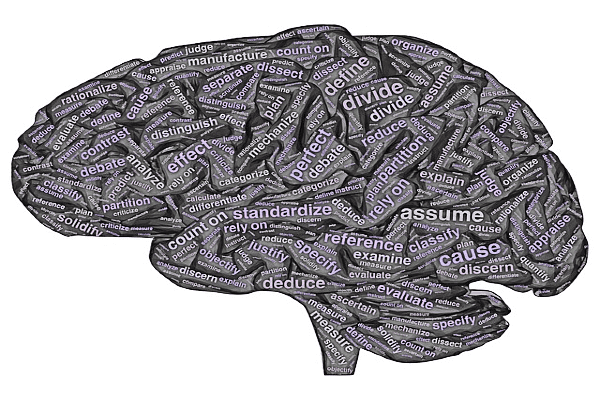 |
| How to Be an Optimist and Rational |
How to Be an Optimist and Rational. Although many people are pessimistic about the development of the world, the data shows optimism for a better world today.
This time I will discuss the book The Rational Optimist by Matt Ridley. This book discusses how we can see the world from an optimistic and rational perspective.
For more than two hundred years, pessimists have dominated public talk, insisting that things will soon be much worse than in the past.
But in fact, life is getting better and faster. Food availability, incomes and life expectancy are steadily increasing, while disease, child mortality and violence are declining worldwide.
Modern life cannot be compared to ancient life. Today, everything is much safer, easier and more prosperous. A clear example is the expansion of trade that increases trust between countries and has an impact on increasing wealth.
On the other hand, the invention of innovations such as the ability to cook food turned out to have an important role in the development of mankind.
How to Be an Optimist and Rational, You Can Try
I've summed it up into three highlights from the book The Rational Optimist by Matt Ridley:
First, human development began with the invention of cooking
Humans have not always had a natural ability to trade and interact with one another. Early humans originally belonged to small families or tribal groups and did not produce many significant technological advances.
However, all that can be said to have changed since the invention of the Cooking method. Cooking is the first step in cultural evolution. We get more calories from cooked food than raw food.
In addition, cooked food is more nutritious and can be shared with more people in less time. This discovery also led to the existence of a specialist system of division of labor in early humans.
The women gathered grains and basic carbohydrates, while the men hunted larger animals for protein. This development continued until finally humans experienced a surplus in terms of food.
This excess of resources then encourages mutual trust in people outside the group through trade. As trust among foreigners slowly increased, humans began to trade in goods other than food. This trade developed into the first innovation network about 160,000 years ago.
For the first time, humans have access to the cultural traditions, raw materials, and technologies of different communities. They can also share knowledge even among distant communities. The evolution of this culture is very important for the development of mankind.
Prosperity increases and both parties benefit. Because of the importance of connecting with each other through trade, this could leave other civilizations behind if they didn't join the network.
For example, the people living in Tasmania were a society isolated by rising ocean currents about 10,000 years ago. As a result, their condition is arguably deteriorating in terms of the use of technology.
They forgot how to make hooks, spiked spears, and cold weather clothes. They don't have the advanced technology that people on the mainland have. Therefore, trade is the most important early evolutionary feature for human development.
A community will benefit from the collective knowledge of different communities thus making them many times more productive.
Second, Trade increases prosperity
Long before the start of community interaction through trade, most human interactions between foreigners were quite violent and wars over limited resources were quite common.
Over time, as humans began to live in larger groups and trade with foreigners, things began to change. Humans developed a deeper trust in each other, the impact of which pushed humanity forward and has benefited until now.
 |
| How to Be an Optimist and Rational |
There is something we need to be aware of together. Regardless of what's on the news and what might lead us to believe, data shows that the world is a safer place to live in by the most objective measure.
It must be realized, when there is violence and it becomes news it is precisely because it is very rare. On the other hand, the security we enjoy every day doesn't make news because it's so commonplace.
The relationship between trade and levels of trust is evident because in places where trade thrives, self-interest diminishes and standards of living increase.
A society with a high level of mutual trust is also the key to the accumulation of wealth in the future. People with high levels of trust are generally wealthier than people with low levels of trust.
At a later stage, prosperity plays an important role in helping to foster a culture of cooperation and individual respect.
For example, in a relatively rich country, more than 65% of people say they trust each other, while in a relatively poor country, only 5% of the population trust their fellow citizens.
Third, urban areas support the exchange of ideas and innovation
The first cities appeared about 7,000 years ago along trade routes in Mesopotamia, where goods from different parts of the world were exchanged. People flocked to these trade routes for wine, metals, olive oil, wheat, wool, or other goods that they could not obtain in the areas where they lived.
For the first time in history, humans could live as traders, not just farming or raising livestock. Apart from being a center of trade, urban areas also help the development of human thought.
It must be understood, it is difficult to develop ideas on their own, but urban areas attract various merchants and different types of people, so the collective knowledge of the people is also gradually developing.
More Cool Stuff: How to Be a Charismatic Person
This is what then encourages the occurrence of innovations that have an impact on human life. Urban areas are a great place to develop and spread ideas.
For example, many of the world's innovations were developed in London in the 1800s. This explosion of innovation is not because people living in London are smarter than people living elsewhere, but because the city attracts many talented people from all over the world.
Closing
That's my writing about How to Be an Optimist and Rational, Although this book talks about optimism, on the other hand pessimism also has benefits.
Basically, both pessimists and optimists have their respective roles in society. Pessimists warn people of potential dangers and optimists lead the way into the future.
 |
| How to Be an Optimist and Rational |
A society consisting only of optimistic people will lead us to destruction. A group of people who only contain pessimists will stop growing.
There was no era in the past, where the world was a safer, more prosperous and prosperous place. The development of commerce and urban areas supports the exchange of ideas and innovations that benefit the world.




0 comments